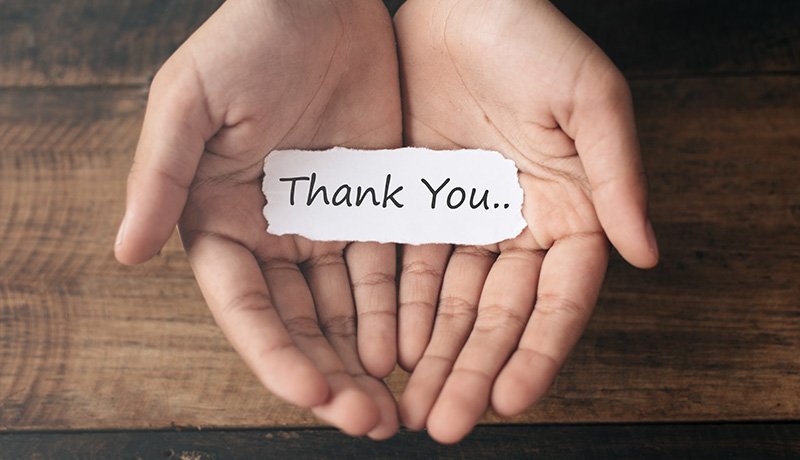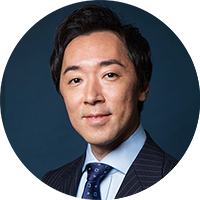Coach's VIEW is a business column authored by executive coaches in COACH A, aimed at providing valuable insights and effective approaches for leveraging coaching to foster organizational and leadership development. The column draws on the latest coaching trends and data, as well as insights from notable global publications on coaching.
Start Your Challenge from "Thank you"

In 2020, we worked with many clients who are taking on "challenges".
A "challenge" is when you step out of the safety of your comfort zone and into an unpredictable future.
You do not know what is in store for you.
You may be caught up in the unpredictable.
You may find yourself in trouble.
There is no guarantee of success, and the thought of the cost of failure might cause hesitation. So how could the leaders I have worked with take that courageous step?
Courage From Relationships
One of my clients, John, a leader in a major manufacturing company, was someone who took on a challenge in . He had been given a big challenge by his company but was struggling to deliver.
During a coaching session, John had the opportunity to receive feedback from his boss, the CEO.
The feedback to John was very severe. As soon as he opened his mouth to read the report, he repeatedly said that his boss did not understand him and that this was a misunderstanding. But at the end of the feedback, when he saw the words "do what only you can do", he suddenly fell silent. He thought about it for a while and then said, "I'm going to ask my boss directly what the feedback really means."
This is the moment when John's attention, previously focused on "protecting himself", turns to being curious about the other person.
By talking directly to his boss, John learned what was expected of him. In subsequent sessions, he began to express more empathy for his boss's vision and to talk about how he could help him achieve his goals. And John changed his mind and started to enjoy the challenge.
I came across with the impression that, through this process, his boss had changed from being an enemy to being a comrade .
How to Take the First Step Forward
In his book "The Psychology of the Meaning of Life", the psychologist Alfred Adler explains that there are two attitudes to interpersonal relationships and work.
"Life is about barricading oneself against harm and protecting oneself by escaping unharmed."
"Life is about concern for one's fellow man, about being part of the whole, about contributing to the well-being of humanity."
The former describes an attitude of avoiding facing life's challenges, while the latter describes an attitude of being actively involved in life, that is, having the courage to face life's challenges. These two attitudes also affect how we see others.
If you take the former position, you may see others as "troublemakers". From the latter point of view, others may appear to be 'friends and allies'.
We can take either position. However, no matter how much we understand this in our minds, we unconsciously fear "harm" and want to protect ourselves. This is a natural reaction of the organism to increase its chances of survival.
But Adler says that by taking the latter position, we can ultimately contribute to our own happiness and the happiness of others. Here are three ways to do this:
Self-acceptance (accepting yourself as you are)
Contribution to others (knowing what you can contribute to others)
Trust in others (to trust others)
The aforementioned process experienced by John included exactly these three points. Stepping out of the defensive "protect yourself" way of being and engaging with others may have given him the courage to face further challenges.
To Cap Off the Year 2020
If we want to step out of our safety zone and achieve something in the face of challenge, we cannot avoid interacting with others. We need to see others as friends and allies, not as enemies.
Ichiro Kishimi, author of "The Courage to Be Disliked", says that one of the most effective things you can do to promote this is to say "thank you". Saying "thank you" reveals the contribution of the other person and puts the relationship on an equal footing rather than a hierarchical one.
In 2021, we will have to face more challenges than ever before.
To help us do this, let us take a moment to think about who has contributed last year and say 'thank you' to them this year.
This will encourage them, and you, to take on the challenges ahead.
【Reference】
Alfred Adler (author), Ichiro Kishimi (translator), The Psychology of the Meaning of Life, Vol. 1 and 2 (Arte), 2010
Ichiro Kishimi (Author), The Courage to Be Disliked (Diamond Inc.), 2014
*Regardless of profit, non-profit or intranet, secondary use such as copying, diversion, selling etc. is prohibited without permission.
Language: Japanese

